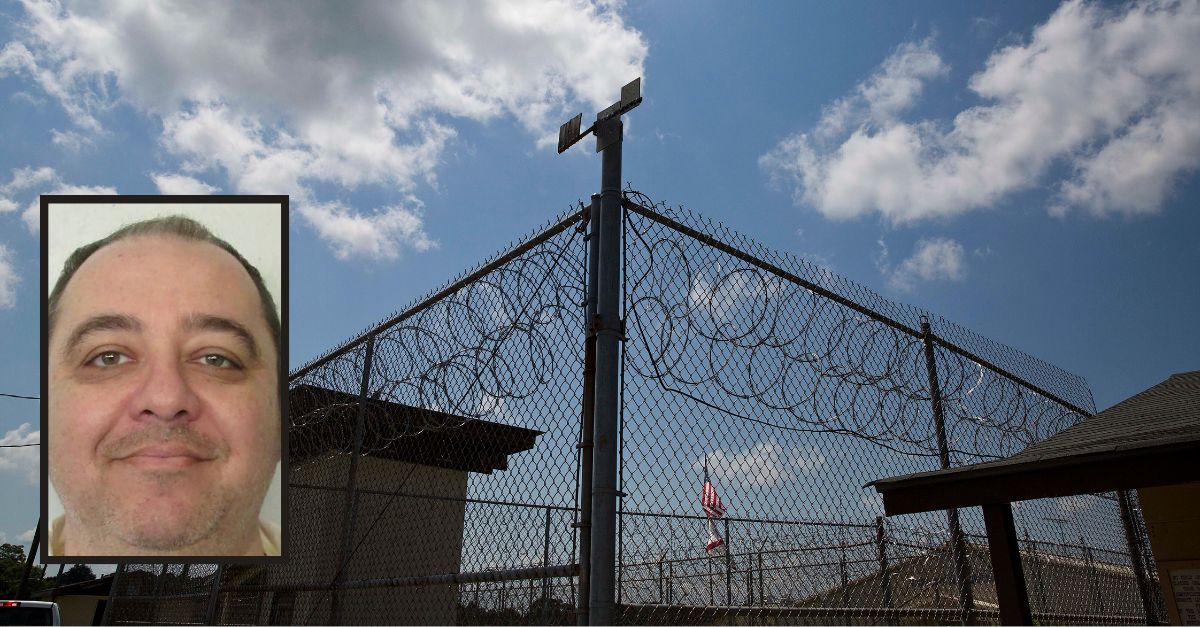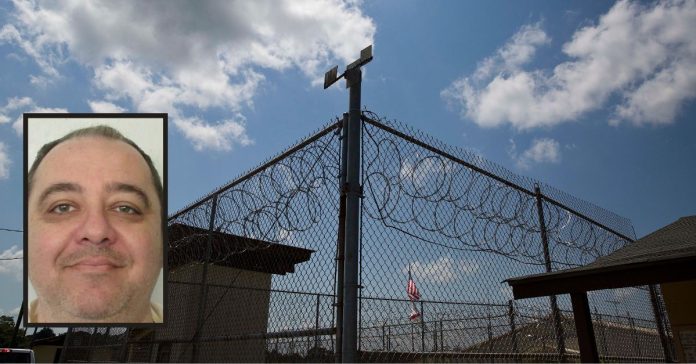
This undated photo provided by the Alabama Department of Corrections shows inmate Kenneth Eugene Smith, who was convicted in a 1988 murder-for-hire slaying of a preacher’s wife. (Alabama Department of Corrections via AP, File)
The state of Alabama has tried to kill Kenneth Eugene Smith before. Now, with the U.S. Supreme Court’s tacit approval, executioners will have their chance once again on Thursday. This time using nitrogen gas.
On Wednesday, with no recorded dissents, the nine justices on the nation’s highest court declined to pause what will be the first of its kind: an experimental execution enacted by nitrogen hypoxia.
The court declined to say why it allowed the execution to go forward.
“The application for stay of execution of sentence of death presented to Justice Thomas and by him referred to the Court is denied,” the terse order reads. “The petition for a writ of certiorari is denied.”
The Yellowhammer State’s chosen method to kill Smith is supposed to work by the death row inmate inhaling nitrogen to the point that he does not receive enough oxygen to his tissues and eventually dies.
Alabama announced the first system of its kind in August 2023, according to the Death Penalty Information Center. State Gov. Kay Ivey, a Republican, announced that Smith would be the first person subject to nitrogen hypoxia in November 2023.
The 58-year-old was convicted of killing a reverend’s wife in a murder-for-hire plot in 1988. He was first sentenced to life in prison by jurors. Then, the trial judge overruled the jury and sentenced Smith to death. He has been on death row since 1996 and confessed to his role in the brutal beating and stabbing death of Elizabeth Sennett, 45.
Alabama initially tried to execute Smith in November 2022. For nearly two hours, medical executioners repeatedly tried to find the proper place to attach the intravenous lines needed. Eventually, the clock ran out on the warrant to execute him. The state moved ahead with plans to execute Smith again, which, in turn, prompted a lawsuit.
The second execution was paused by a federal appeals court in 2023 but a district court finally gave the go-ahead earlier this month.
In that order, U.S. District Judge Austin Huffaker noted that Smith himself requested execution by nitrogen hypoxia as an alternative method — highlighting the agony of the botched lethal injection.
Huffaker mused that the inmate asked to be executed this way simply because he was trying to delay his punishment as the state worked out its final protocols for death by nitrogen hypoxia.
Once that was done, Huffaker noted, Smith then changed course and argued that method would not be appropriate either.
“Now that Alabama is prepared to carry out his sentence using the method of execution he has consistently declared he prefers, the circumstances have changed,” the judge wrote. “And what was once highly unlikely is now a certainty. With that change, Smith now seeks to enjoin the Defendants from carrying out his death sentence using the Protocol, arguing it unconstitutionally superadds pain such that the court should order the Defendants to amend it or execute him by firing squad, a ‘relatively uncommon and archaic’ method.”
In his denied petition to the U.S. Supreme Court, Smith took note of the newness of the planned method of death — as well as the rare instance of a state trying to kill the same person twice.
“For its second attempt, the State obtained permission from the Alabama Supreme Court to employ nitrogen hypoxia — a novel method of execution that has never been attempted by any state or the federal government — using a recently-released and untested protocol,” defense attorneys wrote. “States have failed at executions before. But upon information and belief, if Alabama proceeds with its planned execution attempt, it will be only the second time in U.S. history that a state follows through with a second execution attempt after a previous, failed attempt.”
Anti-death penalty advocates are protesting on Wednesday night. At least some activists believe the discourse surrounding the experimental nature of the execution is a bit of a sideshow.
“The discussion that is missing in all of this hubbub around nitrogen hypoxia is the mental torture of a second execution attempt,” Death Penalty Action Executive Director Abraham Bonowitz said in a statement provided to Law&Crime. “That, and the fact that if Kenny Smith were on trial today, he could not be sentenced to death at all because his jury was not unanimous regarding his sentence, and jury overrides were outlawed in Alabama in 2017. Alabama’s capital punishment system as a whole is broken and cannot be trusted to get it right.”
Brandi Buchman and Elura Nanos contributed to this report.
Have a tip we should know? [email protected]

